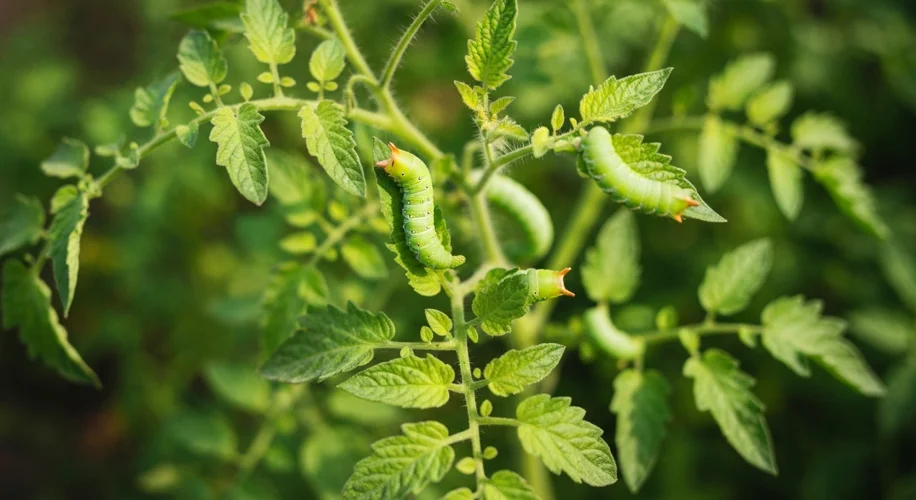Hey everyone!
When your garden is thriving, it’s one of the most rewarding feelings. But let’s be honest, sometimes those tiny, uninvited guests can show up and try to steal the show. Aphids on your tomatoes, slugs Sliming their way through your lettuce, or those infamous tomato hornworms munching away – they can be a real headache. Over the years, I’ve found that nature often provides the best solutions, and today I want to share some of my favorite natural pest control methods that keep my garden healthy and chemical-free.
Aphids: The Tiny Troubleshooters
These little green, black, or sometimes even pink bugs love to cluster on new growth, sucking the life out of tender shoots. My first line of defense is usually a strong blast of water from the hose. Often, this is enough to knock them off and break their cycle. If that doesn’t do the trick, I reach for my homemade insecticidal soap. A simple mix of a tablespoon of mild liquid soap (like Dr. Bronner’s) with a quart of water is surprisingly effective. Just spray it directly on the aphids, making sure to get them really coated. The soap breaks down their outer layer and dehydrates them.
Slugs and Snails: The Slimy Saboteurs
These guys are particularly active on damp nights and mornings. I’ve tried everything from beer traps (they work, but can be messy) to copper tape around my raised beds. My personal favorite, though, is diatomaceous earth (food-grade, of course!). It’s made from fossilized diatoms and has sharp edges that dehydrate slugs and snails when they crawl over it. I sprinkle it around the base of vulnerable plants, especially after rain. Just remember to reapply after a good watering.
Tomato Hornworms: The Big Chompers
These large green caterpillars can decimate a tomato plant overnight. The best way to deal with them is often good old-fashioned hand-picking. If you spot one, just grab it and drop it into a bucket of soapy water. Keep an eye out for hornworms with tiny white cocoons on their backs – those are parasitic wasps, and they’re actually helping you out by eating the hornworm! Leave those ones be.
Preventative Measures: A Healthy Garden is a Resilient Garden
Beyond specific treatments, a healthy garden is less susceptible to pest outbreaks. This means focusing on good soil health with compost, ensuring proper watering, and choosing disease-resistant plant varieties. I also like to encourage beneficial insects like ladybugs and lacewings by planting flowers they love, such as dill, fennel, and yarrow. They’re nature’s pest control squad!
Gardening is all about observation and working with nature, not against it. These natural methods have saved my crops time and time again, and I hope they can help your garden thrive too!
Happy Gardening,
Elias

